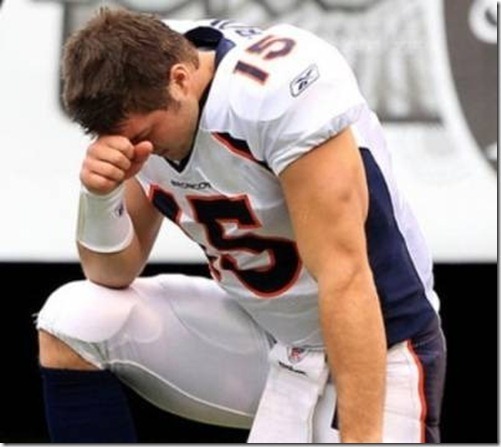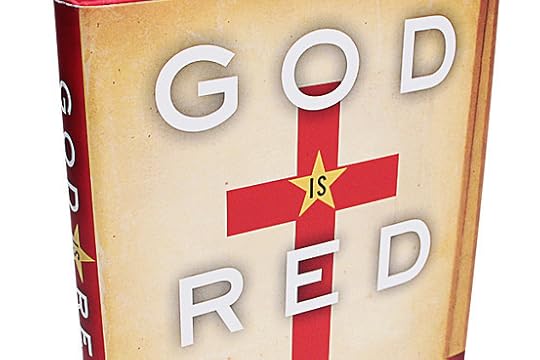Justin Taylor's Blog, page 256
December 14, 2011
Dying without Christ
 From Christopher Hitchens's latest article in Vanity Fair, written from a cancer center in Houston where he is undergoing chemo:
From Christopher Hitchens's latest article in Vanity Fair, written from a cancer center in Houston where he is undergoing chemo:
I am typing this having just had an injection to try to reduce the pain in my arms, hands, and fingers. The chief side effect of this pain is numbness in the extremities, filling me with the not irrational fear that I shall lose the ability to write. Without that ability, I feel sure in advance, my "will to live" would be hugely attenuated. I often grandly say that writing is not just my living and my livelihood but my very life, and it's true. Almost like the threatened loss of my voice, which is currently being alleviated by some temporary injections into my vocal folds, I feel my personality and identity dissolving as I contemplate dead hands and the loss of the transmission belts that connect me to writing and thinking.
When our identity and our idolatry become one and the same, the prospect of death can only lead to "unyielding despair." Let us continue to pray for mercy and grace that would open the eyes of this enormously gifted man to see the Lord and Savior of the world, Jesus Christ.
Getting Enough Sleep and Staying in the Ministry
 John Piper, speaking at age 49:
John Piper, speaking at age 49:
"I am emotionally less resilient when I lose sleep.
There were early days when I would work without regard to sleep and feel energized and motivated.
In the last seven or eight years my threshold for despondency is much lower.
For me, adequate sleep is not a matter of staying healthy. It is a matter of staying in the ministry.
It is irrational that my future should look bleaker when I get four or five hours sleep several nights in a row.
But that is irrelevant. Those are the facts. And I must live within the limits of facts.
I commend sufficient sleep to you, for the sake of your proper assessment of God and his promises."
Can There Be Such a Thing as a Human Non-Person?
In debates about the beginning of life some will concede the scientific reality that at human conception the embryo is a "human being," but then deny that this is a "person." The assumption is often that personhood is something that comes in degrees and requires not just certain capacities but actual manifestation of certain properties associated with personhood.
Standardized often include questions of the form "A is to B as X is to _____." This exercise helps to identify relationships of symmetry and can prove illuminating. J. P. Moreland, in a lecture at Southeastern Baptist Theological Seminary on "Naturalism and the Crisis of the Soul," gives a helpful illustration on this issue:
Being a person is to being human as being a color is to being red. Something can be colored without being red or blue, but something could not be red without being colored.
Someone can be a person without being a human (an angel), but someone can not be a human without being a person.
Being red is one way of being a color, and being a human is one way of being a person.
When we think of it this way, we can make sense out of how there could be colored things that are not red things or persons without being humans (God, angels, Martians). But it does not make any sense to say there could be a human non-person any more than it would make sense to say there could be a red object that was not colored.
For an advanced level discussion on personhood, Thomistic substance dualism, and bioethics, I'd highly recommend Moreland and Rae's Body & Soul: Human Nature & the Crisis in Ethics (IVP, 2000).
December 13, 2011
God's Funeral
 An exchange between Martin Luther and his wife Katharina:
An exchange between Martin Luther and his wife Katharina:
"Once, when Martin was so depressed that none of Kate's counsel would help, she put on a black dress.
Luther noticed it and asked, 'Are you going to a funeral?'
'No,' Kate replied, 'but since you act like God is dead, I wanted to join you in your mourning.'
Luther got the message and recovered."
—Rudolf K. Markwald and Marilynn Morris Markwald, Katharina Von Bora: A Reformation Life (Saint Louis: Concordia Publishing House, 2002), 139-140.
Thinking through Arguments in the Public Square
J. P. Moreland:
Here is something to practice. When your view is criticized or even ridiculed on television, a radio talk show, or in a newspaper editorial, don't just react angrily.Take a moment to jot down on paper the person's main thesis and how that thesis was supported.
Then do two things.
First, assume the person is expressing at least some good points and try to identify them. This assumption may be false, but the search for common ground with intellectual opponents is a good habit. In the process of identifying these good points, try to argue against your own view.
Second, try to state on paper exactly how you would argue against the view being expressed in an intellectually precise but emotionally calm way.
This exercise may take a few minutes, but if repeated regularly it will aid you in developing this third group of virtues [humility, open-mindedness, self-criticality, non-defensiveness].
J. P. Moreland, Love Your God with All Your Mind: The Role of Reason in the Life of the Soul (Colorado Springs: NavPress, 1997), p. 109.
In addition to this, I think it's important to identify the hidden premises and presuppositions.
Most arguments in the public square do not set out the premises in a nice syllogistic fashion (If A, then B; A; therefore B [modus ponens] or If A, then B; not-B; therefore not-A [modus tollens]). But the premises are still there; you just need to dig a little bit.
Take this example from Bob Costas's thoughtful piece on Tim Tebow:
[Tebow] has the good sense, and good grace, to make it clear he does not believe God takes a hand in the outcome of games.
Most of us are good with that. Otherwise, how to explain what happens when there are equal numbers of believers on either side? Or why so many of those same believers came up empty facing Sandy Koufax? Or hit the deck against Muhammad Ali? Or why the Almighty wouldn't have better things to do?
You could formalize at least three arguments from this. Here is one:
If God plays a part in the outcome of sports game, then God would ensure that believers always win.
Believers do not always win in sports games.
Therefore God does not play a part in the outcome of sports game.
Good arguments have clear terms in true premises using valid logic. When all of these conditions obtain, then the argument is sound. Bad arguments have at least one of the following wrong: ambiguous terms, false premises, or logically fallacious reasoning (i.e., the conclusion doesn't follow).
So returning to the Costas argument, we are now in a position to evaluate it:
Are the terms clear? Yes. (Though one could say that God's "taking a hand" could be clarified, as Owen Strachan does.)
Is the valid logic? Yes. (That is, the form is legitimate: if the premises are true then the conclusion necessarily follows.)
Are the two premises true? We know that premise 2 is empirically true. But premise 1 is false. It's a question of special revelation, and the Bible provides the answer: God can do all things (Ps. 115:3) and God works all things according to his will (Eph. 1:11), but God does not automatically guarantee believers worldly success and victory.
There's no need to restrict such analysis to arguments one finds problematic. Tracing good arguments can be equally instructive. To see an example on the positive side, here is Greg Koukl's analysis of the arguments in President George W. Bush's comments on embryonic stem-cell research.
For parents who want to help guide their children—or need an introduction themselves—to the basics of reasoning and argumentation, a resource to consider is the Bluedorns' The Fallacy Detective: Thirty-Eight Lessons on How to Recognize Bad Reasoning.
The Evangelical Love Affair with Bad Alarmist Statistics
Everyone seems to love stats about bad Christians. Non-Christians like to see that we really are fakes. Christians like to think the sky is falling.
The journalistic approach to such studies is troublesome in itself. When our first instinct is always to play up the "scandal" we not only contribute to the secular impression that Christians are all fakes, we also contribute to our own impression that the Christian life is bound to end in failure. We need to find better ways to motivate toward holiness than utter, shocking shame.
Just as important, we need to examine whether our alarming conclusions can hold up under close scrutiny. We need to ask: are these stats about bad Christians themselves bad stats?
Or to ask the question more clearly: what should we think about the claim that "Christians are having premarital sex and abortions as much (or more) than non-Christians"?
Read the whole thing for a closer look at the stats behind Tyler Charles's article, "(Almost) Everyone Is Doing It: A Surprising New Study Shows Christians Are Having Premarital Sex and Abortions As Much (or More) Than Non-Christians," Relevant Magazine (September/October 2011), 66ff.
December 12, 2011
Is God Helping Tim Tebow Win?

The other night Bob Costas raised—and ultimately dismissed—the possibility of God's role in the nearly unbelievable string of Broncos victories with their unabashed evangelical quarterback Tim Tebow at the helm:
The combination of Denver's continuing late heroics, and today, the Bears' otherwise unexplainable errors, is enough to have some at least suspect divine intervention. Except that Tebow, whose sincere faith cannot be questioned, and should be respected, also has the good sense, and good grace, to make it clear he does not believe God takes a hand in the outcome of games.
Most of us are good with that. Otherwise, how to explain what happens when there are equal numbers of believers on either side? Or why so many of those same believers came up empty facing Sandy Koufax? Or hit the deck against Muhammad Ali? Or why the Almighty wouldn't have better things to do?
Which raises the question: how should believers think about this improbable season? About sports games in general? Why would God care who wins and who loses? Isn't it dangerous to think God is pulling for one team over another?
We need some thoughtful theological reflection here, and I'm thankful that Owen Strachan has provided exactly that. After providing some important background and clarification, Strachan writes, "we're positioned to answer a question that, as we can see, requires more care than your average drive-time call-in show may gave it."
Here's the upshot of his piece:
God oversees and ordains all that comes to pass. This includes, as surprising as it may initially seem, football games. The outcome of every football game ever been played was planned by the all-wise, all-seeing mind of God. But this is not saying what some might think. God has also planned every haircut you've ever had, and every shopping trip you've ever taken. He is lord of football, and he is lord of produce. Nothing happens outside of his sovereign direction.
We err, though, if we equate his general superintendence of this world—the falling of sparrows, the numbering of hairs—with the special working of his kingdom. This is what Costas seems to be protesting, and in a much fuller sense than he understands. God has a special interest in promoting his gospel and building his church (John 3:16; Rom. 10; Eph. 1). This is not to say that he is uninterested in the ordinary things of the world, but rather to note that the mission of salvation begun after Adam's fall holds preeminence for God and, by extension, for his followers.
We must also say that for Tebow, the way he plays football is necessarily a matter of God's glory. In the same way that God gains glory through the work of a faithful accountant, a sacrificial, sleep-deprived mother, and a repentant cellist, God gains glory through righteous athletes who work hard in his name and seek to be a light in dark places. God directs the life and exploits of Tim Tebow, football hero. But he also directs Owen Strachan, Boyce College professor, or my friend Colin LeCroy, a Dallas lawyer, or my friend Emily Duffus, an Atlanta schoolteacher. Tebow may reach more people in his work, but we are all working for the glory of God, who directs and blesses our work so as to magnify his name.
I encourage you to read the whole thing. It's an important, careful answer to a question that is rarely this front and center in our culture.
How to Think Rightly about the Triunity of God
Gregory Nazianzen:
No sooner do I conceive of the One than I am illumined by the Splendour of the Three; no sooner do I distinguish Them than I am carried back to the One.
When I think of any One of the Three I think of Him as the Whole, and my eyes are filled, and the greater part of what I am thinking of escapes me.
I cannot grasp the greatness of That One so as to attribute a greater greatness to the Rest.
When I contemplate the Three together, I see but one torch, and cannot divide or measure out the Undivided Light.
—Gregory of Nazianzen, Orationes, 40:41
Books & Culture's Book of the Year
Books & Culture's Book of the Year is Liao Yuwi's God Is Red: The Secret Story of How Christianity Survived and Flourished in Communist China (HarperOne, 2011).
John Wilson writes, "Like nothing you have read about Christianity in China. Inspiring, beguiling, consistently surprising, with a quirky literary sensibility and a complete absence of hype." In his endorsement for the book he wrote, "God Is Red is the most wonderfully surprising report on the church in China I've seen, and Liao Yiwu is the best literary guide since Vergil."
Here are some other endorsements and reviews:
"This is a mesmerizing and amazing tale of courage. Author Liao Yiwu's story, covering even the recent past, is especially powerful because he is not himself a Christian. The reporting is brilliant and the perspective dazzling." (David Aikman, author of Jesus in Beijing)
"No writer does better than Liao Yiwu in revealing the texture of daily life for ordinary people in China. His characters walk off the page and into your heart. . . . Humanity oozes from every vignette, and every detail rings true." (Perry Link, Professor emeritus, East Asian Studies, Princeton University )
"It is very difficult to read Liao Yiwu's work without being constantly reminded of Christian struggles in the ancient Roman Empire. . . . Who can tell how the story will play out this time round?" (Philip Jenkins, author of Jesus Wars)
"A subtle and sober account by one of the foremost banned writers of contemporary China. An irresistible read, pulsating with humanity." (Lian Xi, author of Redeemed by Fire: The Rise of Popular Christianity in Modern China)
"A leading Chinese writer [provides] an insider's look at the surging interest in Christianity within the world's most populous nation . . . a journalistic chronicle of how Christians survived the repressive Mao era as well as a glimpse into why their numbers are rising." (Christian Science Monitor )
"Every so often, you come across a narrative of courage under suffering that is so well reported, so restrained and sensitive in its intelligence, that you are momentarily altered by the experience. . . . God Is Red is a powerful account of Chinese Christians' perseverance." (Christianity Today )
"If you want to read one book that sums up the glory of the Christian witness under persecution and the tragic 20th-century story of China's Christians, read God Is Red. Brilliant and immensely moving, it will, if anything can, inject new backbone into your own Christian life." (Christianity Today )
"Beginning with a 100-year-old nun and ending with a recovering slacker, . . . the voices of individual believers are lively and immediate. . . . Though Liao's subjects claim to have no interest in politics, the question of political change in China is the subtext." (Wall Street Journal)
"There is the authorized version of life in China propagated by the Communist Party, and then there is the unauthorized version. Liao Yiwu is one of the foremost authors of the latter, for which he has paid a steep price." (Wall Street Journal )
"The author, himself an object of intermittent government harassment, is a deft interviewer. Not a believer himself, Liao empathizes with the Christians he encounters. These portraits of faithful Christians are beautifully drawn, neither triumphalist nor maudlin. Suffering, but also resilience and hope, are the common lot of these believers." (Daniel Bays, author of Christianity in China)
Justin Taylor's Blog
- Justin Taylor's profile
- 44 followers




